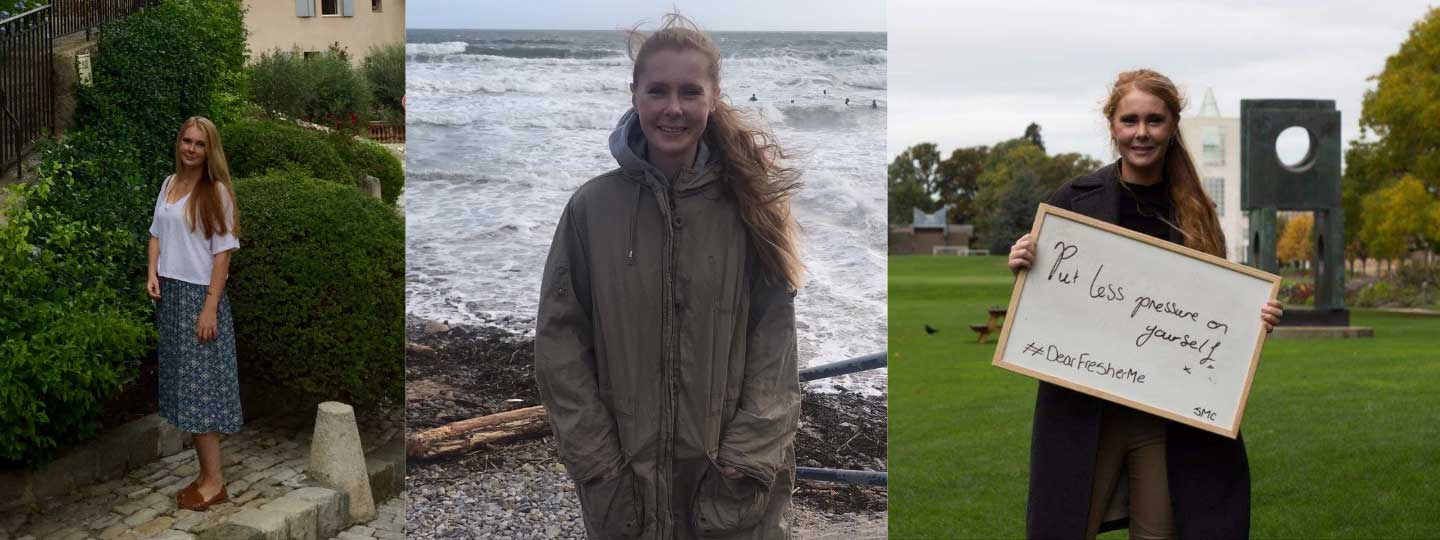“Try to give yourself the same empathy you’d give others.”
09 May 2022
My name is Angharad, I’m currently 28 and was diagnosed with SAPHO (synovitis, acne, pustulosis, hyperostosis and osteitis) syndrome. A chronic condition that affects the skin, bone, and joints four years ago.
Why is talking helpful for you?
My family have been a great support for me through my diagnosis, treatments and helping me to learn to live with arthritis. I feel lucky to be able to get their advice and I'm comfortable telling them why I am down some days.
I’ve been able to tell friends about my condition more as I’ve got my head around it myself. It’s better to live honestly. For example, if you don’t feel like meeting up, it can help to be honest about why.
How do you think talking can help people living with arthritis?
To discuss how you feel with someone who understands is comforting, as arthritis presents many unique issues in daily life.
That’s why I find the Versus Arthritis personal stories so helpful and strengthening, as you feel you’re not the only one.
Life as a young person comes with challenges and often when you have arthritis, it adds another element.
It helps to know there are other young people going through these things and are finding ways to work through life positively.
Versus Arthritis has created a support network which has personally really helped me keep positive. I hope to meet more people with arthritis, as I think sharing experiences and ways of coping and thriving can have a huge impact.
What are the challenges to opening up?
My major challenge to opening up about my pain, fatigue and worries, has been worrying about the impact it may have on loved ones.
You want to protect them from knowing you’re in pain, but those who care about you often know when something is wrong. Talking can help them understand what’s wrong and how they can help.
My experience with arthritis feels like a very personal thing to share and so sharing and asking for help doesn’t come naturally to me.
I’m learning that putting my head down and getting on with life, ignoring how I feel, isn’t good for myself or others around me. Most people will just want to help you in what ways they can.
It can be practically difficult to share how you feel. When I have a flare up, it usually comes with brain fog that makes it very difficult to form coherent thoughts. These can make me more emotional and less rational.
In those moments, I try to just keep my mind as calm as possible and be kind to myself. I don’t put too many demands on myself or beat myself up for not communicating well.
How do you look after your mental health?
Getting outside, particularly in nature, can help clear my head and the fog that comes with inflammation. It helps to loosen up stiff joints and can help to put things into perspective once I am away from stresses that come from work, phones etc.
I try to listen to my body and rest when I need to. Accepting that I need to be kinder to myself is a good practice to keep.
Keeping healthy and eating well can help you cope mentally. Don’t beat yourself up when you do slip up is also important.
I can feel more annoyed at myself when I am eating badly, getting stressed, drinking too much, etc. because the condition can make the impact worse. I have to remind myself that I am human and that trying my best every day is good enough.
For anyone who is worried about opening up, what advice would you give?
- Share more with the people you care about. Tell them about your appointments and practical challenges, like medication choices.
It can really help you and it also helps bring others on the journey with you and helps them understand things more. This is important particularly when you are newly diagnosed, it can feel hard to share and you don’t really understand how arthritis will impact on your life.
- Try to give yourself the same empathy and kindness you’d give others. People who care about you would not want you to suffer in silence.
- It’s good to create an awareness that you are happy to talk about your condition. It can help others feel more comfortable about bringing it up and asking questions.
- Don’t feel like you must always put a positive spin on things. Sometimes you’re having a bad day and that’s ok. Remind yourself how strong you are to just keep moving forward.
We’re here for you
- If you would like to talk to someone, you can call our free helpline on 0800 5200 520
- Chat to our Arthritis Virtual Assistant.
- Join our online community.
- Stay in touch and follow us on Twitter, Facebook and Instagram.
You might also be interested in...
-
Relationships and arthritis: how to strike a healthy balance
All relationships go through happy times and difficult times and having a long-term condition such as arthritis can present challenges. Read our top tips.
-
Why are yoga and tai chi beneficial for our bodies and minds?
Learn how yoga and tai chi have been found to be beneficial for arthritis, improving strength, flexibility and fitness, while also being good for mental health.